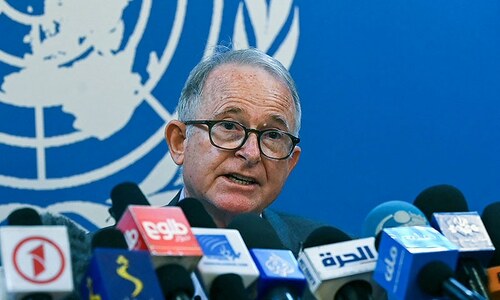The Taliban remain illegitimate rulers despite a declaration by thousands of male clerics endorsing their hardline government, Afghan women activists said on Sunday.
The clerics pledged allegiance to the Taliban and its reclusive leader Saturday following a three-day meeting that failed to address thorny issues such as the right of teenage girls to go to school.
The Taliban — who seized power last August — have since tried to present the meeting as a vote of confidence in their vision of a pure Islamic state totally subservient to sharia law.
They insisted last week that women would be represented at the meeting — attended by over 3,500 men — but only by their sons and husbands.
“Statements released or pledging allegiance to the Taliban in any gathering or event without the presence of half of the nation's population, the women, are not acceptable,” Hoda Khamosh, a rights activist currently in exile in Norway, told AFP.
“This summit... does not have legitimacy, validity, or the approval of the people.”
Since returning to power in August, the Taliban's harsh interpretation of Sharia law has imposed severe restrictions on Afghans — particularly women.
Secondary school girls have been barred from education and women prevented from working in government jobs, forbidden from travelling alone, and ordered to dress in clothing that covers everything but their faces.
The Taliban have also outlawed playing non-religious music, ordered TV channels to stop showing movies and soaps featuring uncovered women, and told men they should dress in traditional garb and grow their beards.
In Kabul, a collective of women's groups also slammed the clerics' meeting as not representative.
“The ulema (clerics) are just one part of society, they are not the whole,” organiser Ainoor Uzbik told AFP after a press conference.
“The decisions they made serve only their own interests and are not in the interest of the country and its people. There was nothing for women on the agenda, nor in the communique.”
In a statement, the collective said men like the Taliban held absolute power before in history — but usually only for a short time before being dumped.
“The only thing Afghans can do is to raise their voice and demand the international community puts pressure on the Taliban,” Uzbik said.
















































